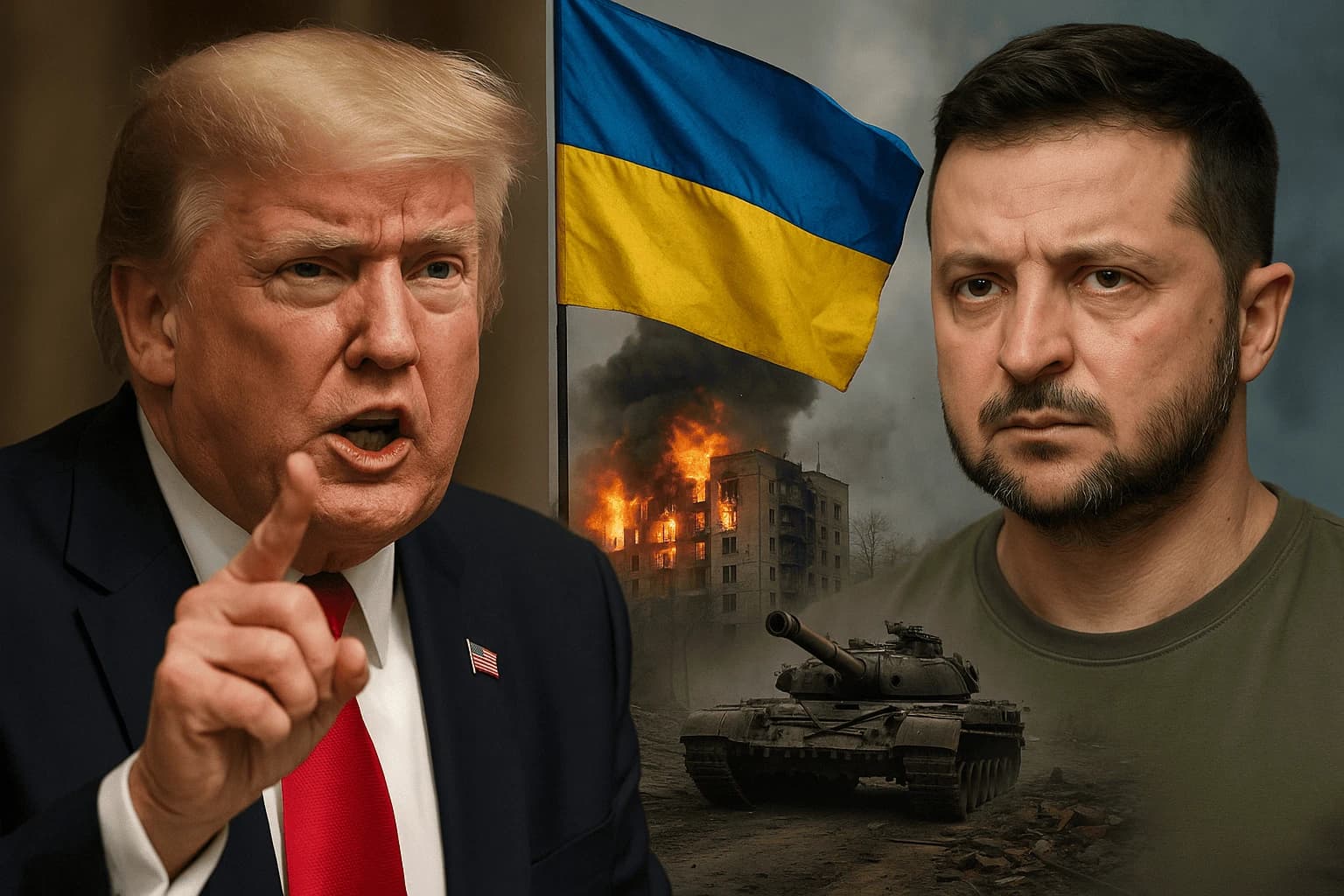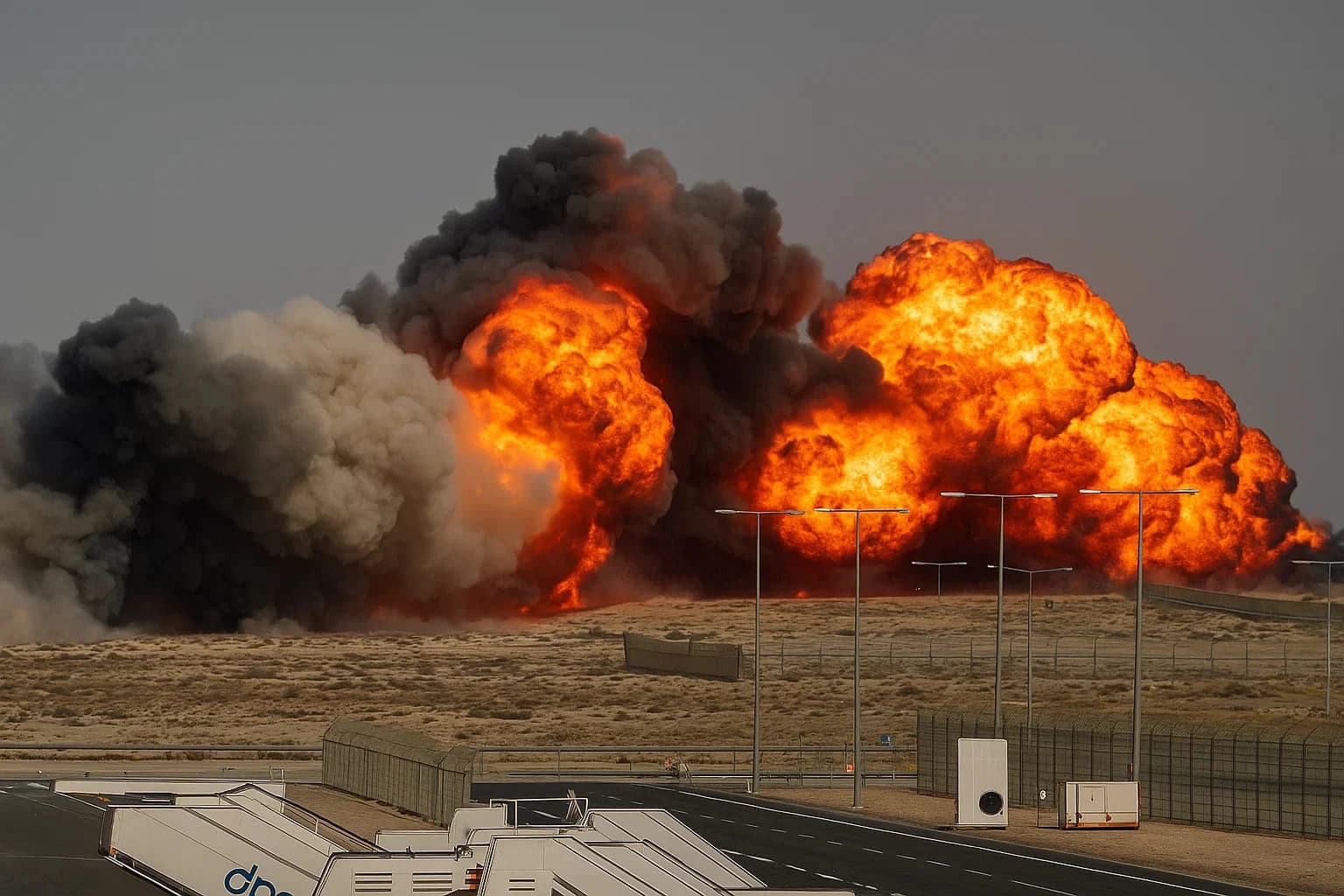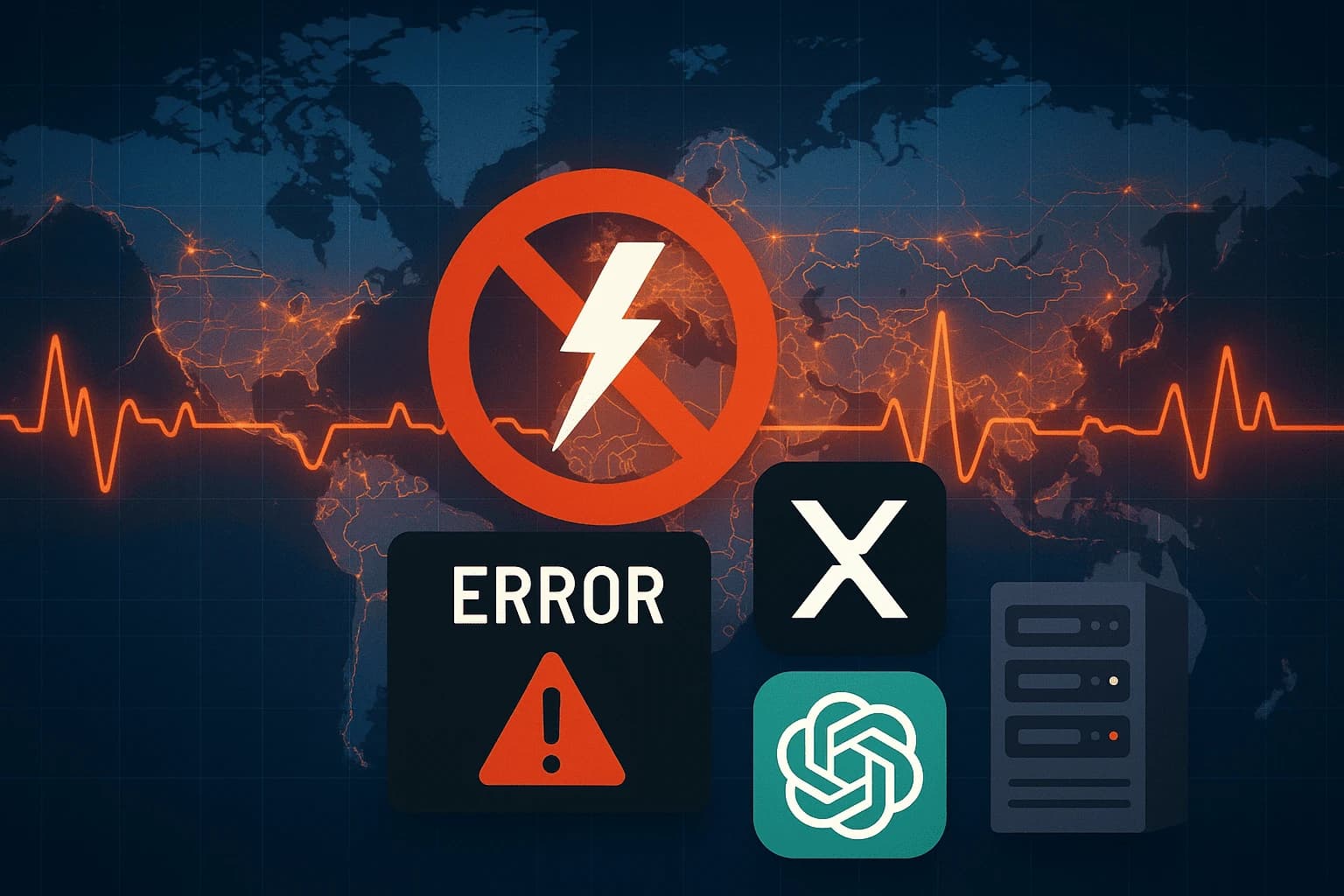© 2025 Roz UpdatesbyTETRA SEVEN

* All product/brand names, logos, and trademarks are property of their respective owners.
In a statement that instantly sparked global debate, former U.S. President Donald Trump claimed Ukrainian President Volodymyr Zelenskyy could end the ongoing war with Russia “almost immediately.” The bold remark came just days before Zelenskyy’s highly anticipated diplomatic summit in Washington, where he is set to meet U.S. leaders backed by top European officials to discuss the future of Ukraine and regional security. Trump, known for his blunt and often controversial views on foreign policy, suggested that peace could be achieved swiftly if Ukraine agreed to drop its NATO membership ambitions and relinquished claims over Crimea.
This statement is not just a soundbite it’s a shift in tone that could influence the global conversation about war, diplomacy, and sovereignty. As Zelenskyy arrives in Washington with a coalition of European leaders by his side, the world is watching closely. Could Trump's approach offer a fast-track to peace, or does it undermine the complexities of territorial sovereignty, democratic values, and long-term security?
The timing of Trump's comments is equally notable. Having recently met with Russian President Vladimir Putin in Alaska, Trump’s framing of the conflict raises eyebrows especially as tensions between Russia and the West remain volatile. His remarks have stirred both support and strong criticism across political and diplomatic circles, reigniting old debates about appeasement, power dynamics, and how peace should be pursued.
With Ukraine still under siege and global stakes higher than ever, the conversation isn’t just about ending a war. It’s about how that war ends, who decides, and what the implications are for international order. This blog unpacks Trump’s comments, the diplomatic moves unfolding in Washington, and what they mean for Ukraine, Europe and the world.
Donald Trump has never been one to shy away from making bold statements, but his recent comments on the Ukraine-Russia war stirred a new wave of global reaction. During a media appearance following his closed-door meeting with Russian President Vladimir Putin, Trump claimed that Ukrainian President Volodymyr Zelenskyy could "end the war almost immediately." His solution? Ukraine should drop its bid to join NATO and officially cede Crimea to Russia.
To some, this might sound like a practical shortcut to peace. But to others, especially those in Ukraine and Europe, it’s a dangerous oversimplification. The idea of conceding Crimea an area illegally annexed by Russia in 2014 goes against international law and years of Western policy. Trump’s suggestion essentially places the burden of peace on Ukraine’s shoulders, asking them to make major concessions, while ignoring the actions and ambitions of the aggressor, Russia.
This proposal sparked immediate criticism from political analysts and human rights advocates. Critics argue that it sets a dangerous precedent: if a country can invade and occupy land, then hold onto it by forcing the victim to concede under pressure, what's stopping future aggressors? Trump’s statement might appear as a peace offering, but many view it as a form of appeasement that undermines the principles of sovereignty and justice.
Adding fuel to the fire was Trump’s unexpected meeting with Vladimir Putin in Alaska just days before Zelenskyy's arrival in Washington. The optics alone Trump engaging with the Russian president while Ukraine continues to face missile strikes sent a strong message.
Although the content of the meeting wasn’t officially disclosed, many believe it played a role in shaping Trump's new stance on the Ukraine conflict. His remarks closely mirror Russia’s demands: that Ukraine drop its NATO aspirations and acknowledge Crimea as Russian territory. This has led many to speculate whether Trump is aligning more closely with Moscow’s perspective intentionally or not.
His defenders argue that Trump is simply being pragmatic, focusing on ending the war and saving lives. But critics say that by repeating talking points favored by the Kremlin, Trump is undermining Ukraine's struggle for independence and legitimacy on the world stage.
In Washington, Trump’s comments triggered a mix of support and outrage. Some Republican figures echoed his sentiments, emphasizing the need for the U.S. to prioritize “peace over politics.” Others, including prominent Democrats and international policy experts, warned that such a plan would embolden authoritarian regimes and weaken U.S. credibility as a global defender of democracy.
In Europe, leaders were quick to distance themselves from Trump’s narrative. Many European nations, particularly those close to Russia’s border, expressed concern that caving to Moscow’s demands could destabilize the entire region. European allies reaffirmed their commitment to Ukraine’s sovereignty and NATO’s open-door policy, standing firmly behind Zelenskyy ahead of his Washington visit.
Ukraine, unsurprisingly, rejected Trump’s proposal outright. Zelenskyy’s administration reiterated that any peace agreement must respect Ukraine’s territorial integrity. To them, Trump’s plan feels like betrayal one that sacrifices their long fight for freedom in exchange for political convenience.
Despite mounting pressure and evolving global narratives, Ukrainian President Volodymyr Zelenskyy has held firm: peace is not possible without justice. In response to Trump’s remarks, Zelenskyy made it clear that Ukraine will not entertain any plan that involves surrendering its sovereignty. The idea of giving up Crimea or abandoning NATO aspirations, he argues, would not lead to peace it would lead to more instability.
Zelenskyy has consistently stated that a sustainable peace must be built on principles, not deals made behind closed doors. To him, conceding territory to Russia would reward aggression and open the door for future invasions, not just in Ukraine but potentially across other vulnerable regions.
In fact, Zelenskyy’s response to Trump was sharp and unwavering. “Peace must be fair. Peace must be lasting. And peace must respect international law,” he said in a press briefing before his Washington trip. His stance resonated with many in the international community, especially countries that value democratic governance and territorial sovereignty.
Zelenskyy didn’t arrive in Washington alone. Flanked by key European leaders, his visit demonstrated more than just diplomatic protocol it sent a powerful signal of unity. Countries like France, Germany, and Poland stood beside Ukraine, reaffirming their unwavering support for its sovereignty and European future.
This collective backing from Europe served to counterbalance Trump’s narrative. While Trump may see a quick deal as the answer, European leaders are focused on long-term stability. They view the war in Ukraine not as a distant conflict, but as a defining moment for Europe’s security architecture.
Their presence in Washington was also symbolic. It reminded the U.S. that Ukraine’s allies are not ready to give up. They are still invested in the outcome not just for Ukraine, but for the credibility of Western values in the face of rising authoritarianism.
At the heart of the debate lies a critical question: What happens if Ukraine concedes? If Zelenskyy were to accept Trump’s conditions, it might end the war faster but at what cost?
Experts warn that making concessions under pressure sends the wrong message to the world. It tells other aggressive regimes that war pays off. History offers several lessons on appeasement, and many fear this could be another Munich Agreement moment a short-term peace that leads to long-term danger.
Moreover, giving up NATO ambitions weakens Ukraine’s future security. Without the backing of an alliance, Ukraine could become even more vulnerable to future Russian aggression. And conceding Crimea could alienate millions of Ukrainians who still see it as an integral part of their nation.
In the grander scheme, this isn’t just a conflict between two countries. It’s a test of whether international law still matters. And that’s why Zelenskyy, along with his European allies, is determined not to trade peace for principles.
Donald Trump’s claim that President Zelenskyy could end the war in Ukraine “almost immediately” has sparked a powerful debate across the globe. For some, his proposal drop NATO ambitions and give up Crimea seems like a practical shortcut to peace. But for many others, including Ukraine and its European allies, it’s not just unrealistic it’s dangerous.
Zelenskyy’s refusal to accept such conditions underscores a deeper truth: that real peace cannot come at the cost of justice. Ukraine is not merely fighting a war of survival it’s defending its sovereignty, its democracy, and the principle that borders should not be redrawn by force. Conceding to Russia’s demands would not bring stability; it would invite further aggression, not only in Eastern Europe but possibly in other regions where authoritarian powers are watching closely.
Trump’s stance may appeal to those weary of war and eager to see an end to global conflict. But peace deals brokered without the full inclusion of the people most affected especially when built on forced compromises rarely last. They paper over deep wounds without healing them.
This moment in history is not just about Ukraine. It’s about how the world responds to invasions, to authoritarian demands, and to attempts at redrawing the global order through intimidation. As Zelenskyy walks the halls of Washington alongside Europe’s top leaders, the message is clear: peace is welcome, but not at any cost. Not if it means giving up what’s rightfully theirs.
In the end, the choice isn’t between war and peace. It’s between justice and expediency. And the world must decide: is it willing to sacrifice principle for political convenience or will it stand firm in defense of a free and sovereign Ukraine?

22 November 2025

18 November 2025
No comments yet. Be the first to comment!